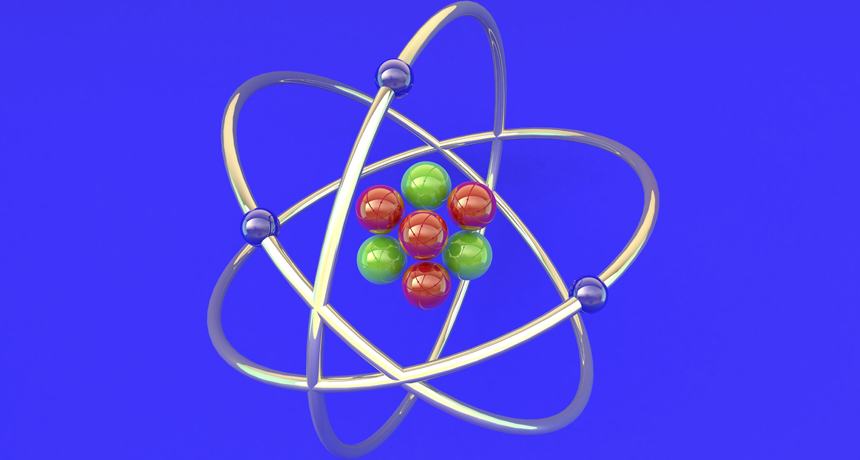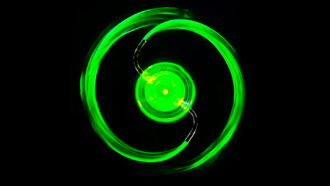atom The basic unit of a chemical element. Atoms are made up of a dense nucleus that contains positively charged protons and neutrally charged neutrons. The nucleus is orbited by a cloud of negatively charged electrons.
atomic Having to do with atoms, the smallest possible unit that makes up a chemical element.
electron A negatively charged particle; the carrier of electricity within solids.
gluon A subatomic particle believed to bind other particles together.
hypothesis A proposed explanation for a phenomenon. In science, a hypothesis is an idea that hasn’t yet been rigorously tested. Once a hypothesis has been extensively tested and is generally accepted to be the accurate explanation for an observation, it becomes a scientific theory. Ideas that are based on a hypothesis are referred to as hypothetical.
matter Something which occupies space and has mass. Anything with matter will weigh something on Earth.
neutrino A subatomic particle with a mass close to zero. Neutrinos rarely react with normal matter. Three kinds of neutrinos are known.
neutron A subatomic particle carrying no electric charge that is one of the basic pieces of matter. Neutrons belong to the family of particles known as hadrons.
photon A particle representing the smallest possible amount of light or other electromagnetic radiation.
proton A subatomic particle that is one of the basic building blocks of the atoms that make up matter. Protons belong to the family of particles known as hadrons.
quarks A family of subatomic particles that each carries a fractional electric charge. Quarks are building blocks of particles called hadrons. Quarks come in types, or “flavors,” known as: up, down, strange, charm, top and bottom.
subatomic Anything smaller than an atom, which is the smallest bit of matter that has all the properties of whatever chemical element it is (like hydrogen, iron or calcium).
theory (in science) A description of some aspect of the natural world based on extensive observations, tests and reason. A theory can also be a way of organizing a broad body of knowledge that applies in a broad range of circumstances to explain what will happen. Unlike the common definition of theory, a theory in science is not just a hunch. Ideas or conclusions that are based on a theory — and not yet on firm data or observations — are referred to as theoretical.








